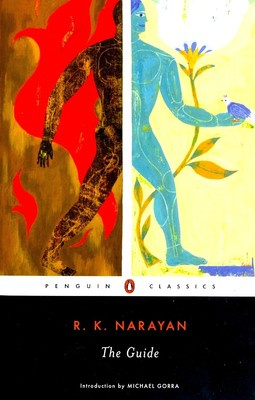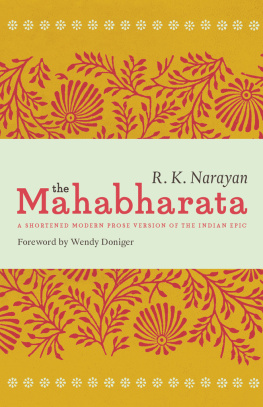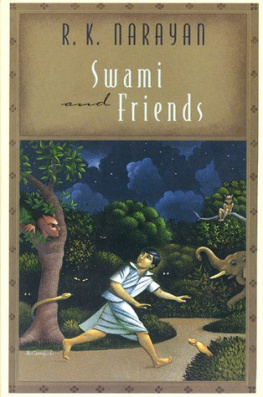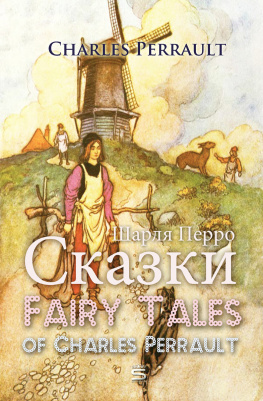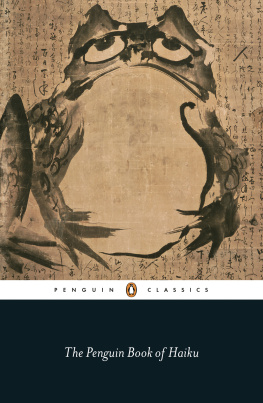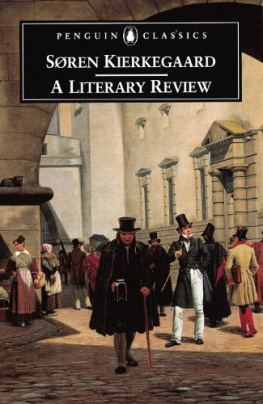THE GUIDE
R. K. NARAYAN was born on October 10, 1906, in Madras, South India, and educated there and at Maharajas College in Mysore. His first novel, Swami and Friends (1935), and its successor, The Bachelor of Arts (1937), are both set in the fictional territory of Malgudi, of which John Updike wrote, Few writers since Dickens can match the effect of colorful teeming that Narayans fictional city of Malgudi conveys; its population is as sharply chiseled as a temple frieze, and as endless, with always, one feels, more characters round the corner. Narayan wrote many more novels set in Malgudi, including The English Teacher (1945), The Financial Expert (1952), and The Guide (1958), which won him the Sahitya Akademi (Indias National Academy of Letters) Award, his countrys highest honor. His collections of short fiction include A Horse and Two Goats, Malgudi Days, and Under the Banyan Tree. Graham Greene, Narayans friend and literary champion, said, He has offered me a second home. Without him I could never have known what it is like to be Indian. Narayans fiction earned him comparisons to the work of writers including Anton Chekhov, William Faulkner, O. Henry, and Flannery OConnor.
Narayan also published travel books, volumes of essays, the memoir My Days, and the retold legends Gods, Demons, and Others, The Ramayana, and The Mahabharata. In 1980 he was awarded the A. C. Benson Medal by the Royal Society of Literature, and in 1981 he was made an Honorary Member of the American Academy of Arts and Letters. In 1989 he was made a member of the Rajya Sabha, the non-elective House of Parliament in India.
R. K. Narayan died in Madras on May 13, 2001.
MICHAEL GORRA is the Mary Augusta Jordan Professor of English at Smith College. His books include After Empire: Scott, Naipaul, Rushdie, and The Bells in Their Silence: Travels through Germany, and he has been the recipient, for his work as a reviewer, of the Nona Balakian Citation of the National Book Critics Circle. For Penguin Classics he wrote the introduction to The End of the Affair by Graham Greene.
CHAPTER ONE
Raju welcomed the intrusionsomething to relieve the loneliness of the place. The man stood gazing reverentially on his face. Raju felt amused and embarrassed. Sit down if you like, Raju said, to break the spell. The other accepted the suggestion with a grateful nod and went down the river steps to wash his feet and face, came up wiping himself dry with the end of a checkered yellow towel on his shoulder, and took his seat two steps below the granite slab on which Raju was sitting cross-legged as if it were a throne, beside an ancient shrine. The branches of the trees canopying the river course rustled and trembled with the agitation of birds and monkeys settling down for the night. Upstream beyond the hills the sun was setting. Raju waited for the other to say something. But he was too polite to open a conversation.
Raju asked, Where are you from? dreading lest the other should turn around and ask the same question.
The man replied, Im from Mangal
Where is Mangal?
The other waved his arm, indicating a direction across the river, beyond the high steep bank. Not far from here, he added. The man volunteered further information about himself. My daughter lives nearby. I had gone to visit her; I am now on my way home. I left her after food. She insisted that I should stay on to dinner, but I refused. Itd have meant walking home at nearly midnight. Im not afraid of anything, but why should we walk when we ought to be sleeping in bed?
You are very sensible, Raju said.
They listened for a while to the chatter of monkeys, and the man added as an afterthought, My daughter is married to my own sisters son, and so there is no problem. I often visit my sister and also my daughter; and so no one minds it.
Why should anyone mind in any case if you visit a daughter?
Its not considered proper form to pay too many visits to a son-in-law, explained the villager.
Raju liked this rambling talk. He had been all alone in this place for over a day. It was good to hear the human voice again. After this the villager resumed the study of his face with intense respect. And Raju stroked his chin thoughtfully to make sure that an apostolic beard had not suddenly grown there. It was still smooth. He had had his last shave only two days before and paid for it with the hard-earned coins of his jail life.
Loquacious as usual and with the sharp blade scraping the soap, the barber had asked, Coming out, I suppose? Raju rolled his eyes and remained silent. He felt irritated at the question, but did not like to show it with the fellow holding the knife. Just coming out? repeated the barber obstinately.
Raju felt it would be no use being angry with such a man. Here he was in the presence of experience. He asked, How do you know?
I have spent twenty years shaving people here. Didnt you observe that this was the first shop as you left the jail gate? Half the trick is to have your business in the right place. But that raises other peoples jealousies! he said, waving off an army of jealous barbers.
Dont you attend to the inmates?
Not until they come out. It is my brothers son who is on duty there. I dont want to compete with him and I dont want to enter the jail gates every day.
Not a bad place, said Raju through the soap.
Go back then, said the barber and asked, What was it? What did the police say?
Dont talk of it, snapped Raju and tried to maintain a sullen, forbidding silence for the rest of the shave.
But the barber was not to be cowed so easily. His lifelong contact with tough men had hardened him. He said, Eighteen months or twenty-four? I can bet its one or the other.
Raju felt admiration for the man. He was a master. It was no use losing ones temper. You are so wise and knowing. Why do you ask questions?
The barber was pleased with the compliment. His fingers paused in their operations; he bent round to face Raju and say, Just to get it out of you, that is all. Its written on your face that you are a two-year sort, which means you are not a murderer.
How can you tell? Raju said.
You would look different if you had been in for seven years, which is what one gets for murder only half-proved.
What else have I not done? Raju asked.
You have not cheated in any big way; but perhaps only in a small, petty manner.
Go on. What next?
You have not abducted or raped anyone, or set fire to a house.
Why dont you say exactly why I was sent to jail for two years? Ill give you four annas for a guess.
No time now for a game, said the barber and went on, What do you do next?
I dont know. Must go somewhere, I suppose, said Raju thoughtfully.
In case you like to go back to your old company, why dont you put your hand in someones pocket at the market, or walk through an open door and pick out some trash and let the people howl for the police? Theyll see you back where you want to be.
Not a bad place, Raju repeated, slightly nodding in the direction of the jail wall. Friendly people therebut I hate to be awakened every morning at five.
An hour at which a night-prowler likes to return home to bed, I suppose, said the barber with heavy insinuation. Well, thats all. You may get up, he said, putting away the razor. You look like a maharaja nowsurveying Raju at a distance from his chair.

